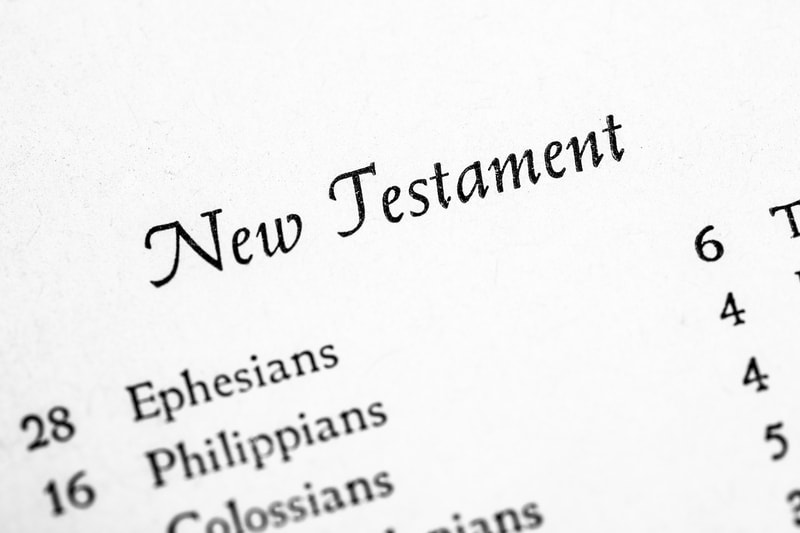The Bible is one of many ancient texts that are known to us today. And even though it has historically been the primary holy book for Christians, is it still widely believed by Christians? Or are the Christians that believe something other than the Bible?
Christians affirm the Bible as our source of authority. There are some differences in interpretation within different branches of Christianity. However, all Christians agree on the substance of the major, core doctrines of Christianity. Any belief that dismisses the authority of the Bible is not a Christian belief.
What is the Bible?
The Christian Bible is a compilation of writings broadly divided into the Old Testament (the Hebrew Bible) and the New Testament. The Bible is organized into 66 books that were written by about 40 different authors from approximately 1500 BC to 100 AD.
Some major traditions (including Catholics) use Bibles that contain additional writings (commonly called the Apocrypha) that originated in the time between the Old and New Testaments. But an examination of those writings is beyond the scope of this article, which addresses belief in the 66 books of the Old and New Testament.
The Origins and Authority of the Bible
The 39 books of the Old Testament record events from the creation of the world to the establishment of the nation of Israel, and then follow the story of Israel from Abraham through the return from exile in Babylon. The last of the Old Testament books were written in the sixth century BC. By the time of Jesus’ birth, the Old Testament had been recognized by Jews as the word of God for at least 500 years.
The New Testament writers directly cite all but three of the books of the Old Testament. The books of the Old Testament are regularly called ‘scriptures’ by New Testament writers (John 2:22, Acts 17:11, 2 Peter 1:20).
And Jesus himself affirmed the Old Testament when he said to his disciples after his resurrection, “This is what I told you while I was still with you: Everything must be fulfilled that is written about me in the Law of Moses, the Prophets and the Psalms,” (Luke 24:44).
The New Testament consists of a record of Jesus’ life and ministry, the establishment and activity of the first-century church, and the teachings of Jesus’ apostles. Peter refers to the letters of Paul as ‘scripture’ (2 Peter 3:15-16). And one of Paul’s later letters cites a portion of Luke’s gospel, referring to it as scripture (1 Timothy 5:18, Luke 10:7).

The Church and the Bible
As the church spread, the writings of the early church fathers establish the authority and reliability of the writings that were compiled into the New Testament. In the second century, Irenaeus identified each of the four gospels as authentic and authoritative, and Origen affirmed the gospels, Acts, and epistles. Over the next two centuries, other writings emerged but were dismissed, and the church established the list of 27 canonical New Testament books at multiple councils in the fourth century.
From the earliest days of the church, the Bible has been the primary authority and revelation on which Christians establish their beliefs and practices. And even though controversies and heresies have been present since the earliest days, it wasn’t until the 18th century Enlightenment that wholesale challenges to the historicity (and thus the reliability) of the Bible began to enter into the church.
Where are We Now?
Over the past two and a half centuries, scientific advancement, secular philosophies, and globalization have informed the perspectives of Christians in general, including their views of the Bible. And so within the church, there are Christians, and even official church doctrines, that vary widely on how to believe and apply scripture.
Conservative Doctrine
In conservative evangelical branches of Christianity, the Bible is described as infallible, inerrant, and inspired. All such traditions view the Bible as authoritative, and declare it true in all matters that it addresses, though there may be some nuance within different traditions about which details within the Bible are to be read literally, and how scripture should be interpreted.
The Reformed doctrine of Sola Scriptura (by scripture alone) teaches that the Bible is the sole infallible authority on Christian faith and practice. By contrast, the doctrine of Prima Scriptura, common to Wesleyan and Anglican traditions, teaches that scripture is our first (or primary) revelation and that other disciplines, such as reason and experience, can supplement (but not contradict) Biblical revelation.
Liberal Doctrine
Even in traditions with conservative roots, liberal interpretation of scripture has emerged which seeks to reconcile secular reasoning and naturalism with Christian teachings. Such theology treats scripture as a collection of myths and legends that were either appropriated from other cultures or embellished as the stories developed.
Liberal theology does not reach a single universal conclusion, as it perceives scripture as a guide, no more or less authoritative than other holy texts. However, surveys among Americans show that even those who identify as Christians commonly believe that Jesus was not divine, that people are generally good, that God would only punish ‘major’ sins, and that Jesus is not the only way to heaven.
Clearly, one cannot hold to liberal doctrine while still adhering to the authority of scripture. The contradictions are too numerous and too great.
Conclusion
From the church’s earliest days, Christians have held that the Bible is authoritative and authentic, and have used it as the foundation of our beliefs. And while there is some room for nuanced interpretation within various branches of Christianity, one cannot profess Christ and simultaneously dismiss the Bible.
Jesus himself affirms that he is revealed in scripture, saying “You study the Scriptures diligently because you think that in them you have eternal life. These are the very Scriptures that testify about me,” (John 5:39). To be a Christian is to know Jesus. And to know Jesus, we must believe his word.





